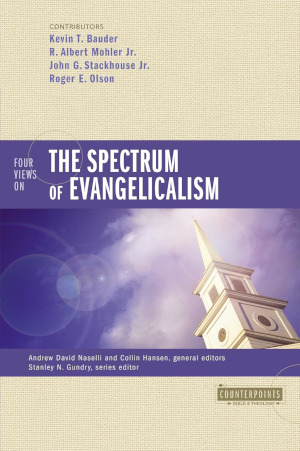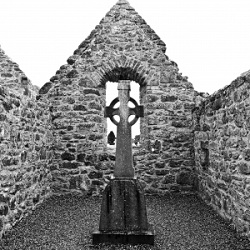Evangelical Spectrum: Four Views or Two Views?

Purchases help fund SI.
Just when readers think that the evangelical “four views” genre has covered every possible angle, editors Andy Naselli and Collin Hansen have come up with a book that explores evangelicalism itself. Zondervan’s Four Views on the Spectrum of Evangelicalism succeeds in presenting four engaging essays that describe the range of positions within evangelical thought. But the book leaves readers with a question. Are there really four views, or can they be boiled down to two?
More specifically, are we headed toward a convergence between mainstream fundamentalists and conservative evangelicals?
Sorting out the positions
Kevin Bauder presents mainstream fundamentalism as an idea worth saving, but not a movement worth saving. While many readers within fundamentalism are familiar with his views, the other three authors seemed somewhat surprised by his measured tone and his willingness to critique his own movement. Bauder contrasts his position with hyper-fundamentalism and populist revivalism, which he identifies as “deficient forms of the movement.” Bauder even worries that these two forces are now more prevalent in fundamentalism, with his own position losing influence. But for those who think that mainstream fundamentalism is identical to conservative evangelicalism, Bauder clearly states that it is not. For Bauder, there are still doctrinal differences related to the definition of the gospel, and practical differences related to separation. (Kevin Bauder’s chapter is excerpted as “Defending the Idea of Fundamentalism” in the November/December Baptist Bulletin.)
Al Mohler chose the term confessional evangelicalism to describe his own position in order to emphasize evangelicalism’s doctrinal center. He could have chosen the more popular title “conservative evangelicalism” (and in conversation he acknowledges they refer to the same movement), but the word “conservative” carries its own political baggage. Unlike the two authors who follow him in the book, Mohler wants an evangelicalism with clear, gospel-defined boundaries. His “first level theological issues” sound a lot like “fundamentals,” which he confirmed to me in a later Baptist Bulletin interview. For that matter, Kevin Bauder also affirms that they are talking about the same essential doctrines. But the difference between their two positions remains a matter of discussion.



Discussion